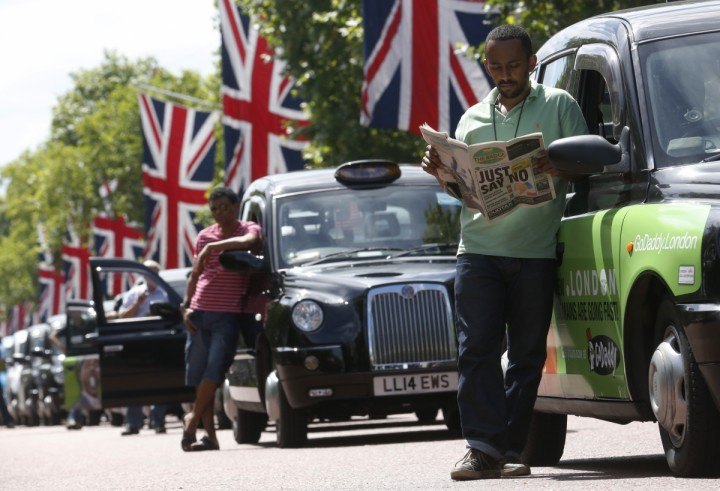European Taxi Drivers Take To The Streets Against Uber
Much like it has in the United States, Uber and other ride-sharing services have upended the traditional taxi in Europe. Just like the U.S., taxi operators have protested the disruption the new services have caused upon them, citing the lack of properly licensed drivers and thoroughly maintained vehicles as a reason to bring them in line with the same regulations they already are mandated to follow. However, unlike the U.S., European taxi drivers took their complaints to the streets, and then some.
Autoblog reports 30,000 drivers in England, France, Germany, Italy and Spain blocked the streets to bring awareness to what Uber and its app are doing to allegedly harm the industry, both in regards to public safety and the industry’s bottom line. The Teamsters International Union threw their support behind the protestors, proclaiming “the drivers’ fight in Europe” was their fight, both sharing similar concerns on ride-sharing:
The drivers are calling for fairness and asking that if the private sedan services are allowed to operate that they do so on a level playing field. Uber is currently operating without having to comply with the same rules and regulations that taxi drivers do.
For its part, Uber defends the services it offers to its members, stating its drivers are fully licensed, undergo a screening process prior to taking on passengers, and are evaluated on their performance through customer-satisfaction metrics compiled in-app from every completed ride by its consumer base.
Seattle-based writer, blogger, and photographer for many a publication. Born in Louisville. Raised in Kansas. Where I lay my head is home.
More by Cameron Aubernon


































Comments
Join the conversation
Isn't this just making Uber look even MORE appealing to people who need a Taxi?
Disruption sounds fun, until ignoring the law becomes commonplace. Then things get upredictable real fast. If you think you're not affected by non-criminal laws like this, think again. Many of these "cabal" laws started out as consumer-protection laws. Many of them still primarily function to protect the consumer.
As someone that was in London during these strikes and used both Uber'd drivers and the jolly ol'black cabs, I can tell you that the strike only drew attention to Uber's awesomeness. The BBC reported Uber downloads increasing by 850% after the strike. It's not all sunrises and dancing girls though. Many European Citiy streets are convoluted driving disasters and on two occasions, google maps failed my Uber driver who then got us lost. One even had to pull over and ask a pedestrian for directions. London Cabbies solve this problem by spending four years studying to take a test proving that they have committed the roadways of London to memory.
The ability to use a computer in the palm of our hand anywhere, anytime is upsetting many entrenched businesses. From brick an mortar retail(ask Best Buy and Blockbuster) to taxis. No business has an inherent right to exist. You have to earn a customer's loyalty and their money. If you can't or won't evolve then you will be left behind. This smacks of the same whining by the Big 3 for higher import tariffs on Japanese imports in decades past. Stop crying and do better.